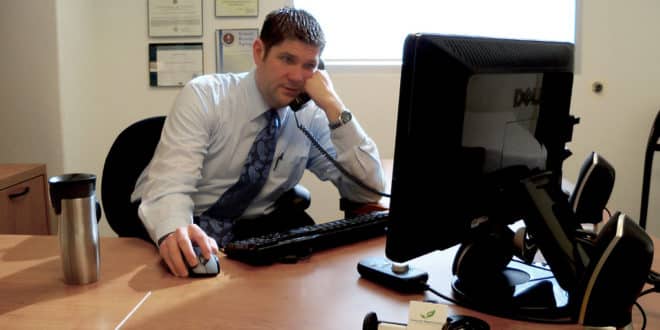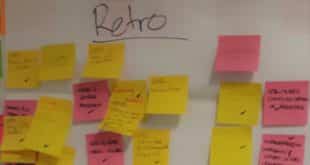This article was originally posted on How Matters. Reposted here with permission.
Many international small grantmakers try to make the application and reporting process practical and accessible to grassroots organisations. This decreases the reporting burden on applicants and grantee-partners. Yet grantmaking staff also recognise that often they do not receive the quality or quantity of written information from grantees to “paint a full picture” of their work, accomplishments and challenges.
Oral reporting is a way to close this gap. More in-depth and detailed information can be gleaned through a semi-structured interview over the phone with grantees using funders’ existing final report questions. The process described below, which I developed and led within a grantmaking team at a private foundation, can reduce the time and expense required of partners to submit their narrative reports. It can accommodate any sort of reporting structure/questions/indicators that the aid partnership requires and supports grantmakers’ aim to foster open, empowering, and flexible relationships with their grantees.
Objectives of oral reporting
- Decrease the time and effort required from selected grantee-partners in preparing a typed, narrative report to donor.
- Enable grantee-partners who struggle with written English to more fully describe their work.
- Enhance donor staff’s opportunities to appreciate and comprehend the work of grantee-partners.
What kinds of grantee organisations can benefit from oral reporting?
- In general, those for whom reporting is a barrier or an undue burden (due to email access, written language usage, etc.)
- Organisations with an overdue site visit.
- Poor reporters – those grantees where you suspect there is “more to the story” than what is coming through on paper.
- Emerging community-based organisations (CBOs) submitting their report for the first time – to help build confidence.
- Organisations where concerns have been noted.
Advantages and disadvantages of oral reporting
| Advantages | Disadvantages | |
|---|---|---|
Grantees |
|
|
Donors |
|
|
Steps in oral reporting
Step One
Each program officer should identify grantees to which they would like to offer an oral reporting option.
Step Two
Send an invitation to grantees (see sample below). The following points should be included in your invitation and subsequent correspondence with grantees:
- Objectives of the donor in offering an oral reporting option to its grantees.
- The final report questions that will be the basis of the conversation, thus offering some structure about what information they might want to prepare.
- Explanation of the steps following the phone conversation, e.g. you will be making a written record of the conversation in a document that will then be sent to them for final approval to ensure accuracy of what was captured.
- Suggestion of dates/times from which they can choose for the phone call.
- Whom you would like to be present for the conversation.
- Verification of the number you should use to place the call.
- Invitation for the grantee to identify any specific issues, stories, or challenges they would like to share/discuss during the session.
Dear partner,
We have developed a new option for some of our grantee-partners to decrease the time and effort needed to write a narrative report on your grant. We would like to offer this to your organisation for oral reporting on grant #XXXX. We hope that this will enable you to more fully describe your work. Also we hope that reporting via phone or Skype will give our staff an enhanced opportunity to comprehend and appreciate your work.
We would like to invite you for an oral reporting interview during the month of X. Kindly inform us as soon as possible if you would be willing to utilise this reporting option and submit your final narrative report in this way.
IMPORTANT TO NOTE: Your organisation will still need to submit a final financial report for grant #XXXX, as well as a renewal grant proposal and budget if you would like to be considered for another grant.
If you agree, these final report questions (see attached) will be the basis of our phone interview. Please review these so that you can identify what information you would need to prepare before our phone call. We would also welcome you to identify and share any specific issues, stories, or challenges they would like to share/discuss during the phone interview.
Following the phone interview, our staff will prepare documentation of what was presented by your organisation and discussed. They will then send the draft report to you for your final approval to ensure accuracy. Once we receive confirmation of your approval, this will be your organisation’s final report on grant #XXXX.
Overall, we hope that we continue to make our reporting practical and accessible to local, community-based organisations. If you are interested to participate in this opportunity for oral reporting, please contact me as soon as possible. Also, if you have any questions, please do not hesitate to contact us.
Our best,
Step Three
Before the phone conversation, review the group’s previous final report, proposal, response to follow-up questions, and grant summary. Identify additional themes or questions that you want to touch on during the oral reporting conversation.
Step Four
Conduct the oral reporting session on the agreed date (review guides for tips on interviewing if necessary.) Take notes during phone conversation to complete final report questions, including any numbers for tables on beneficiary numbers, etc.
Step Five
The program officer should finalise the final report document, e.g. filling in details, making complete, coherent sentences, etc. They should send it to the grantee for their approval. Also, ask grantee to provide feedback on the overall experience of oral reporting.
You can add the following items to the top of the report prepared by the program officer after the oral interview (grey portions must be completed and returned by grantee).
ORAL REPORT DOCUMENTATION
| □ APPROVED by Grantee-Partner? | DATE OF APPROVAL: | Person authorising approval: |
| Grant Number: | Name of Grantee-Partner Organisation: | Grant Amount: |
| Date of Oral Report Phone Interview: | Person(s) Interviewed: | Donor staff person(s) responsible for preparing this report: |
Step Six
Once the grantee has approved the report, treat it as a regular final narrative report. NOTE: The grantee will still need to submit a financial report as per existing procedures, as well as a renewal grant proposal and budget.
To learn more about improving grant application and reporting in ways that support grantee or implementing organisations, I recommend Project Streamline. Its report Drowning in Paperwork, Distracted from Purpose: Challenges and Opportunities in Grant Application and Reporting is a must-read for all aid workers and do-gooders.
Photo by andrew.wippler




